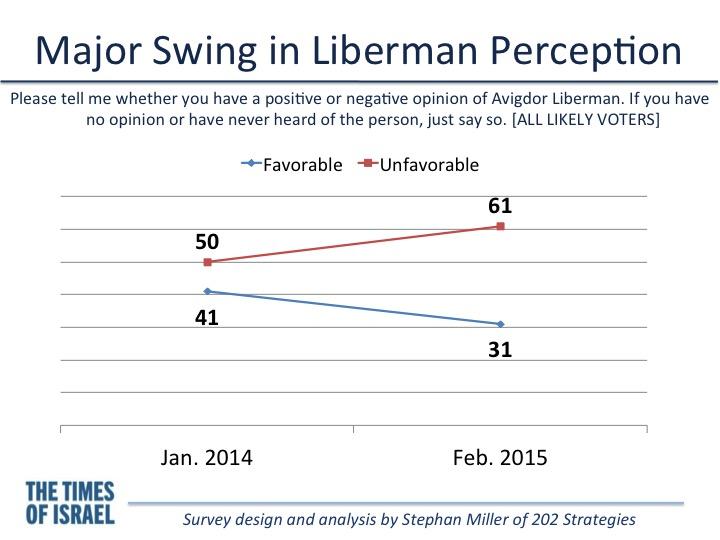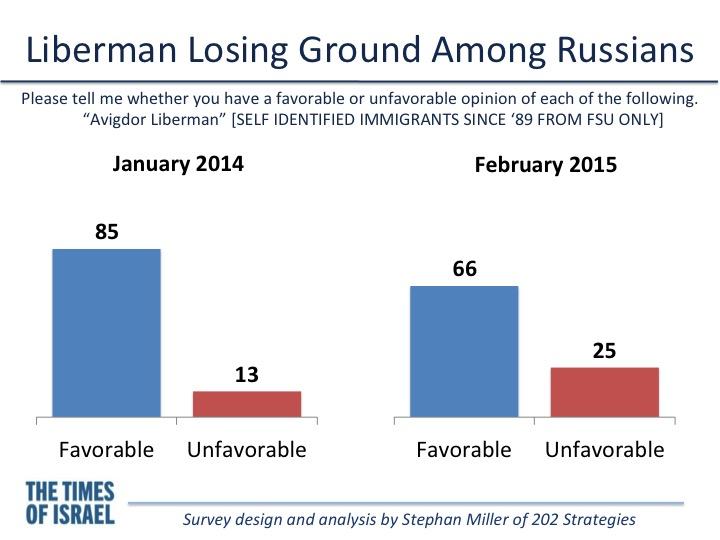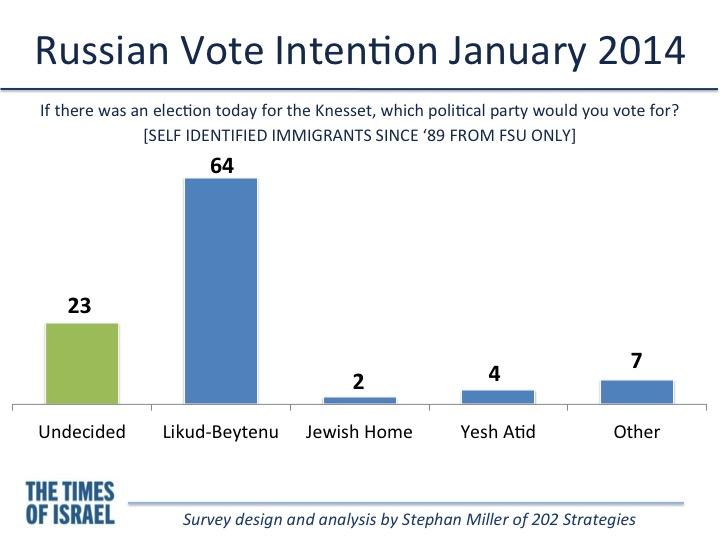The ‘Russian’ vote is disintegrating

This popularity, however, is far lower than the Times of Israel poll conducted in January 2014, which showed Liberman with 85% favorable and 13% unfavorable views within this community. This is a serious collapse among his base group of supporters and certainly fueled his declining favorability among all voters.

Liberman’s waning popularity among Russians group has lead to a hemorrhaging of Russian voters from his party, Yisrael Beytenu. Just a year ago, when Liberman was 85% favorable among Russian voters, two thirds said that they would vote for Likud-Beytenu and 23% were undecided.

Today, after Liberman split from his alliance with Likud, more than two-thirds of Russian voters say they are not voting Yisrael Beytenu, while just 30% say they will, and another 32% say they are undecided. The combined vote intention of Yisrael Beytenu and Likud of 46% is a steep fall in just one year from the 64% vote intention to these parties when they were combined. As such, the rate of undecideds is higher among Russians than across the broader population of likely voters, where 24% are undecided.

With 86% of Yisrael Beytenu voters identifying as Russian voters, 6 of the 7 Knesset seats the data suggests Liberman’s party will receive are Russian. If Liberman wants to get closer to the 13 seats his party has in Knesset today, he will have to go back to his base and bring the undecided Russian voters back home to Yisrael Beytenu.
——-
The survey was conducted February 1-3, 2015, among a representative sample of 824 Israeli adults who indicated that they were very likely or somewhat likely to vote in the upcoming Knesset elections. Respondents who indicated that they were less likely or not at all likely to vote were not included in the survey sample. 44.7% of completed surveys were directed to landline home phones, 33.5% to mobile phones, and 21.9% were conducted via online panels, helping to compensate for the high percentage of Israelis who do not have regular landline phones. 10.1% of respondents were Arabic speakers surveyed in Arabic, and 10.9% were Russian speakers surveyed in Russian. The findings are rounded to the nearest whole digit. The margin of error is +/-3.41% with a 95% confidence level.
This is the fourth in a series of articles that The Times of Israel is publishing on the basis of the poll. The survey was formulated by The Times of Israel and the author, from political consultancy firm 202 Strategies. Our survey is the most accurate publicly available poll to date, having questioned a relatively large sample of 824 likely voters — as opposed to the Hebrew media’s norm of 500 eligible voters.
Stephan Miller

